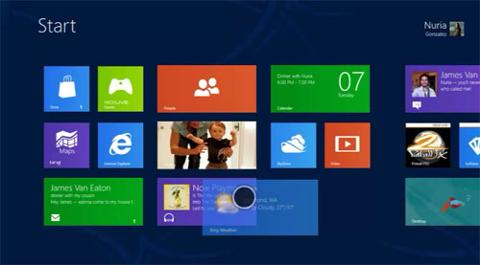Massive Open Online Classes – popularly known as
MOOCs – are growing in scope. That’s a good thing for people who are looking for mostly free ways to enhance their knowledge on topics from general business to narrow technologies. While some charge a fee, most don’t. We’re all busy, but it’s nice to have educational options which only require an investment in time.

Here are three free MOOCs IT professionals may want to consider.
For those of us who make our money on Windows, this course introduces "modern operating systems" with a focus on UNIX. Both Linux and
Apple's OS X run on UNIX, and though the enterprise is largely sticking with Windows, home users aren’t. I’m personally dealing more with users who are connecting to their work PC with a Mac and often need to troubleshoot uninstalling the locally based client. The course covers the structure of modern operating systems, details each of the major OS components, from processes to threads, and explores more advanced topics such as memory management and file input/output. This stuff still matters, especially in virtualized environments. The class concludes with a discussion of various system-related security issues.
Speaking of security, rootkits may be the most pernicious of all malware. Rootkits are mysterious the way all unseen things are mysterious -- you don’t understand what you don’t see. They’re malware that hides on a compromised system and when successful can bring down a network because their payload can be virtually anything. This course focuses on the tools used to find them. The class is described like this:
You, being the only ‘security person’ in the area, have been called in to examine a running Windows server because "it's acting funny." They don't care that you like Mac/Linux/BSD/Plan9 better, you need to look at it! You are solemnly informed that this system is mission critical and can only be rebooted if absolutely necessary. You must investigate whether any sort of compromise has taken place on the system, with minimal impact to the mission. What do you do? What DO you DO?
The class is hands-on and covers:
- Trojaned Binaries
- Inline Hooks
- Import Address Table (IAT) Hooking
- System Call Table/System Service Descriptor Table (SSDT) Hooking
- Interrupt Descriptor Table (IDT) Hooking
- Direct Kernel Object Manipulation (DKOM)
- Kernel Object Hooking (KOH)
- IO Request Packet (IRP) Filtering
- Hiding Files/Processes/Open Ports
- Compromising the Master Boot Record (MBR) to Install a Bootkit
Some techs – even many at high levels -- don't have a reasonable grasp of computer vernacular. Recently, a supervisor asked me to monitor a PC that was crashing. But “crashing” is such a generic term, it can often be meaningless. In other words, it doesn’t tell you
what’s crashing. Is it Word, Explorer, the OS? Is an app hanging? Is the system blue-screening? Without the vernacular, you can't communicate the problem. And though you may be a self-taught computer whiz with your own internal vernacular, in a room full of techs you'll sound ignorant. Among other lessons, Computer Skills and Literacy covers common computer terminology and basic computer security. This self-paced course starts anytime and covers common techniques for troubleshooting computer issues, like recreating problems, testing environments and isolating issues. A last word: Other than certificates of completion, you really don’t have a lot of skin in the game with a MOOC, and you may be tempted to quit. Some classes have completion rates as small as 8 percent. I suggest partnering with someone and studying together. It’s harder to quit when you have someone besides yourself to answer to.
 Here are three free MOOCs IT professionals may want to consider.
Here are three free MOOCs IT professionals may want to consider.



